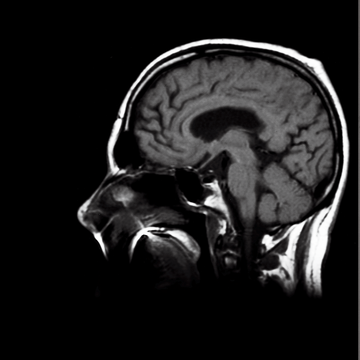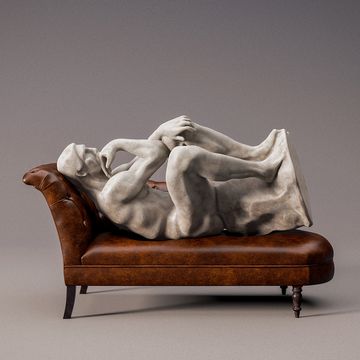Every day, science learns more about the novel coronavirus since it was first detected in December 2019. As more people develop COVID-19, the disease caused by the virus, new symptoms continue to pop up. The Centers for Disease Control and Prevention has continually updated its list of COVID symptoms for specific signs.
Persistent hiccups have recently been reported as a symptom of COVID-19, however it does not appear on the CDC's official list of signs. That's because there's only been one documented case study of hiccups associated with COVID-19, according to board certified emergency physician, Mitchell Li, M.D., owner of Drive Direct Care in Chicago.
Li's says his patients have not experienced hiccups. However, he says people in online Facebook communities are reporting this symptom. For now, there's just not enough evidence to add hiccups to the official list of symptom COVID-19 symptoms, he says.
Are hiccups a sign of coronavirus?
A 62-year-old man went to the emergency department after hiccuping for four days, according to a July report published in The American Journal of Emergency Medicine. A computed tomography, or CT scan, revealed abnormalities in the patient's lungs. The patient also had a fever, and a coronavirus test revealed the man had COVID-19.
The study was published because it was unusual—not because hiccups are a common COVID problem, according to Dr. Li.
However, Lung irritation caused by COVID may have have triggered persistent hiccups, says Neal Shipley, M.D., of Northwell Health-GoHealth Urgent Care. Hiccups are basically spasms that occur when the phrenic nerve, which controls diaphragm muscles, becomes irritated, says Dr. Shipley. So irritation from COVID-related pneumonia could lead to persistent hiccups, but not all cases of hiccups are alarming.
"You just have to be very careful that presuming hiccups equals COVID, " says Dr. Shipley.
Causes of persistent hiccups
There are so many causes of hiccups, but generally gastrointestinal problems, such as acid reflux, are the issue, says Dr. Shipley. However, the problem can even be a side effect from certain medications.
You should consult with a doctor if you can't stop hiccuping for more than 48 hours, says Dr. Li.
"If someone came in with four days of hiccups I wouldn’t blow that off," he says.
Chronic hiccups can be a sign of underlying issues such as a tumor, diabetes, or a gastrointestinal disorder, according to the Mayo Clinic.
However, if you've been exposed to the coronavirus, haven't socially distanced, or exhibit more common symptoms—such as a cough or fever—then you'll want to get tested for COVID, says Dr. Shipley.













